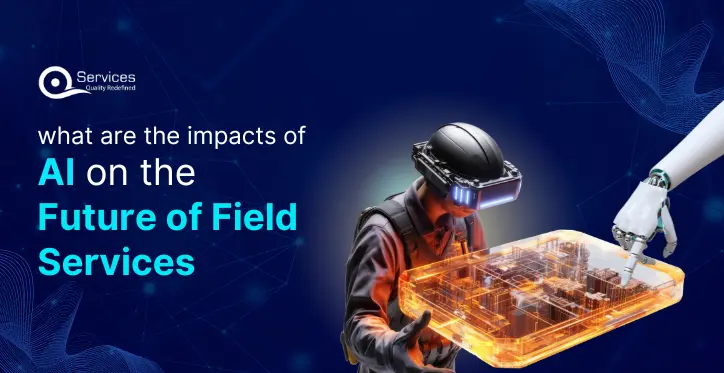
Rewards
.





CANADA
55 Village Center Place, Suite 307 Bldg 4287,
Mississauga ON L4Z 1V9, Canada
Certified Members:
.



Home » Comparing AI Solutions for Business: How Microsoft Azure Stands Out

From operational improvements to better customer experiences, AI is reshaping business strategies. It is a key driver in automation, predictive analytics, and enhancing overall business performance.
With cloud computing becoming the backbone of modern AI solutions, many businesses are turning to cloud AI platforms for faster, more scalable solutions.
But with several powerful players in the field, including Microsoft Azure AI, Amazon Web Services (AWS), and Google Cloud, how do you choose the right one for your business needs in 2025? This blog compares Microsoft Azure vs Amazon AWS vs Google cloud, highlighting how Microsoft Azure AI offers unique advantages that could help your business thrive in this AI-driven world.
All these are machine learning solutions, yet each of them cater to different needs and skill levels. Azure ML is perfect for those seeking simplicity and seamless integration with Microsoft tools, AWS SageMaker is ideal for businesses that need full control over their machine learning processes, and Google Vertex AI excels in high-performance computing and TensorFlow-based deep learning applications.
User-friendly: Azure Machine Learning provides a low-code/no-code interface, making it accessible to non-technical users also.
Seamless Integration: Strong integration with other Microsoft tools and services, like Power BI and Office 365.
Pre-built Models: Users can leverage pre-built models and optimize them for specific business needs.
Automated ML: Offers automated machine learning pipelines, simplifying model building, training, and deployment.
Enterprise-grade: Built to meet the needs of large enterprises with high compliance and security standards.
SageMaker offers a fully-managed environment that enables developers to customize and manage the ML pipeline with a high degree of control.
Whether it’s data preparation or model deployment, it covers every aspect of the machine learning lifecycle.
Provides built-in algorithms optimized for different use cases like text processing, image recognition, and more.
Seamlessly integrates with AWS Lambda, AWS Glue, and other AWS cloud services.
Can handle massive datasets, suitable for both small-scale businesses and large enterprises.
Strong support for TensorFlow, Google’s open-source machine learning framework, making it a great choice for deep learning tasks.
Offers automated machine learning tools to help non-experts develop machine learning models with minimal code.
Vertex AI integrates with Google BigQuery for large-scale data processing.
Built for high-scale machine learning applications, offering massive compute resources when needed.
Great for experimentation, enabling developers to test and iterate models quickly.
Get free Consultation and let us know your project idea to turn into an amazing digital product.
With AWS businesses get high flexiblity and scalability, but small businesses with limited AI skills might find the setup challenging.
Google Cloud: Advanced in analytics and AI experimentation but may need skilled teams for implementation.
Azure: Focused on simplicity and scalability, making it the preferred AI platform for small and medium-sized businesses.
In 2025, AI will become an integral part of both professional and personal lives, with Microsoft Azure AI at the forefront, surpassing AWS vs Azure vs Google 2025 competition with its advanced cloud AI solutions.
The decision of which Cloud AI platform to choose will be crucial for your business in 2025 and beyond. With platforms like Azure, AWS, and Google Cloud AI, understanding your unique needs and aligning them with the right service provider is key to a successful AI journey.
Before diving into AI solutions, clearly define your business needs. Do you need advanced NLP, machine learning, or vision services?
By understanding your specific needs, you’ll better align with a platform that will offer the most effective AI solutions.
The right AI platform must seamlessly integrate into your existing systems.
Choose an AI Platform that naturally fits into your current infrastructure to avoid much complexities.
AI solutions need to be secure, scalable, and backed by solid support.
Opt for a platform that offers the support and security your business needs as it scales.
Be mindful of both short-term costs and long-term viability when selecting an AI platform.
Choose a platform that offers a good balance of cost and value over time.
AI technology is always evolving. Here’s how each platform is preparing for the future:
Ensure that the platform you select offers ongoing updates and innovations that will keep you competitive for years to come.

With its simple interface, Azure AI allows your team to take advantage of AI without needing specialized skills. The platform offers pricing that can be adjusted to fit your business and is scalable, so as your business evolves, Azure AI will keep up. This makes it a smart, cost-effective solution for businesses wanting to integrate AI for the long term.

Pipeline failures can be expensive and harmful to the environment. Companies are using IoT applications in the oil and gas industry to prevent these breakdowns and stay ahead of problems.
![Azure IoT vs AWS IoT vs Google IoT Pricing: Feature Comparison Chart for Enterprise [2025]](https://www.qservicesit.com/wp-content/uploads/2025/03/Microsoft-Teams-vs-Slack-vs-Zoom-TCO-Analysis-for-Enterprise-Organizations-2.webp)
The Internet of Things (IoT) helps businesses run better by connecting devices, collecting information, and improving choices. But picking the best IoT cloud provider can be confusing. The main three are AWS IoT vs Azure IoT vs Google IoT.

In this blog, we’ll explore how these advances are shaping the future of field services and how companies are adapting to stay ahead in a competitive market. What are the key changes that businesses need to embrace to stay relevant and efficient?
Businesses should choose Azure for its scalability, security, integration capabilities, and extensive support for various AI models and tools.
Industries such as healthcare, finance, retail, manufacturing, and logistics benefit significantly from Azure AI solutions.
Yes, Azure AI can easily integrate with existing business systems, including ERP, CRM, and other enterprise applications.
Azure Cognitive Services provide pre-built AI models for vision, speech, language, and decision-making, enhancing various business operations.
The Azure OpenAI Service provides access to powerful OpenAI models, enabling businesses to leverage advanced AI capabilities.
Azure AI offers flexible pricing models, including pay-as-you-go and reserved instances, making it cost-effective for businesses of all sizes.
Azure AI leverages Azure’s robust cloud infrastructure to handle large-scale data processing efficiently.
Benefits include improved customer interactions, faster response times, and personalized customer experiences through AI-powered chatbots and virtual assistants.
Azure AI provides advanced NLP capabilities through services like Azure Cognitive Services and Azure OpenAI Service.
Azure AI enhances cybersecurity by providing advanced threat detection, automated response, and continuous monitoring.
.





55 Village Center Place, Suite 307 Bldg 4287,
Mississauga ON L4Z 1V9, Canada
.




Founder and CEO

Chief Sales Officer

🎉 Thank you for your feedback! We appreciate it. 🙌